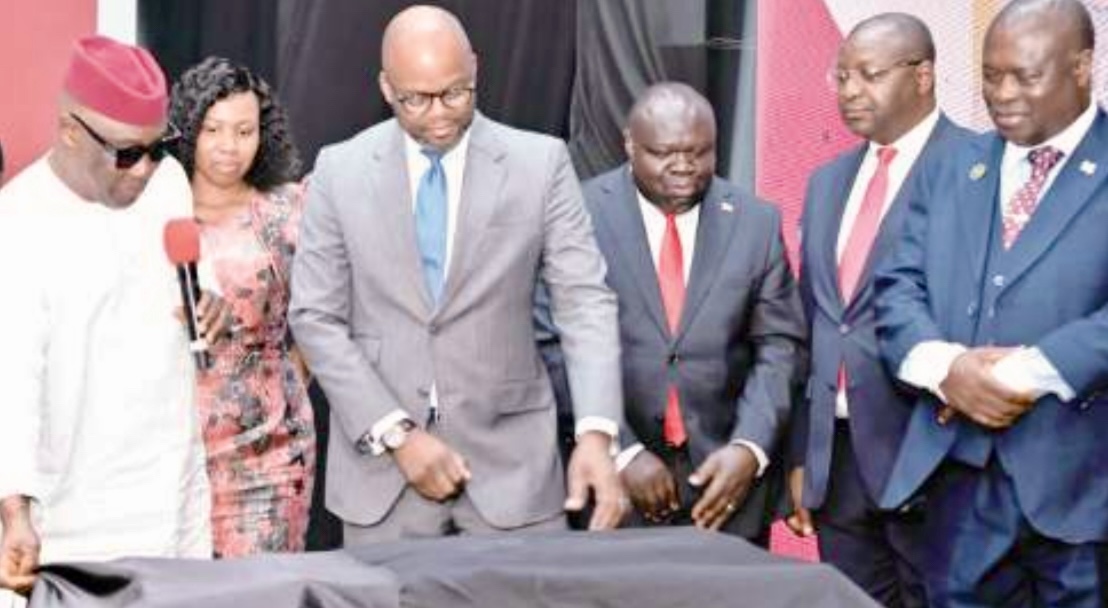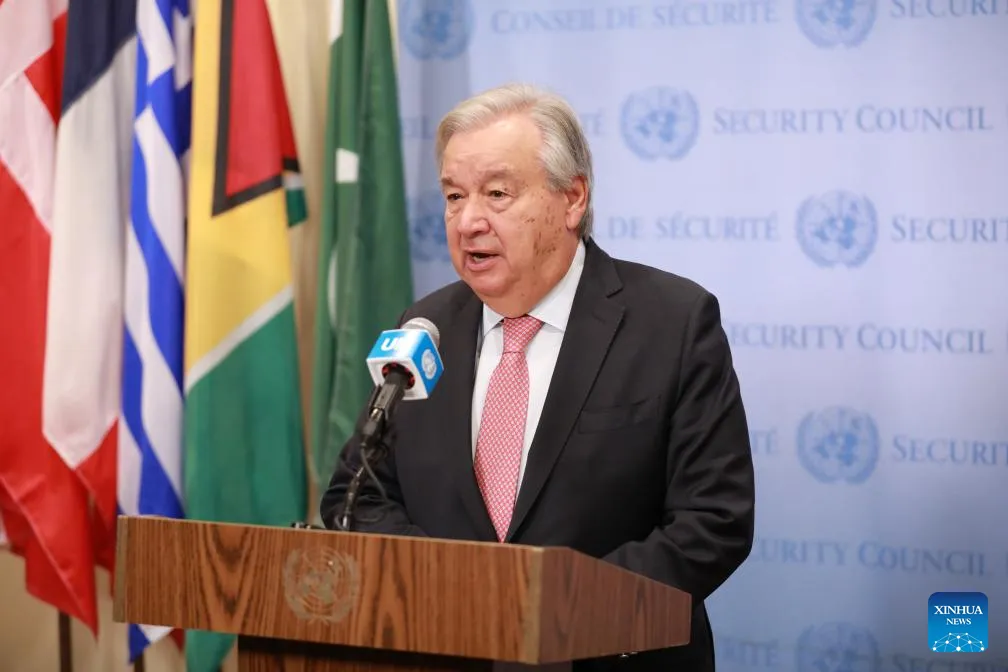By Moses Alao
Copyright tribuneonlineng

In what would go into the annals as one of the most daring initiatives ever taken by a state government in Nigeria, the Oyo State Government launched its Implementation Strategy on the African Continental Free Trade Area, becoming the first sub-national in Nigeria and Africa to undergo such venture.
Acting Governor of Oyo State, Mr Abdulraheem Bayo Lawal, at a well-attended official launch of the implementation strategy last Friday, said that Oyo State has set the pace as the first sub-national to launch an AfCFTA implementation strategy out of the 591 sub-nationals in the 54 African countries that have signed the AfCFTA Agreement.
At the event, which was held at the International Conference Centre, University of Ibadan, Ibadan, and attended by the Secretary-General of the AfCFTA, Wamkele Mene, former Vice Chairperson of the African Union, Monique Nsanzabaganwa, Rwanda’s High Commissioner to Nigeria, Christophe Bazivamo, Sierra Leone’s Deputy High Commissioner to Nigeria, Major-General Dauda Fred Alpha (rtd), among others, the Oyo State Acting Governor, quoting Governor Makinde, said the initiative was taken to create employment, boost trade and make Oyo State a major trade hub in West Africa.
Mene corroborated the governor’s view, noting that by leveraging the opportunities provided by AfCFTA, Oyo State would unleash economic prosperity on residents and the state itself.
The governor explained that the state government’s vision to expand the economy of the state, boost export, increase value addition and the productive capacity of the state led to its decision to align with AfCFTA, even though it is an agreement signed by the Federal Government.
He noted that participating in the initiative, which according to several speakers at the event, including the AfCFTA’s Secretary-General, Rwanda’s High Commissioner to Nigeria, Christophe Bazivamo and Governor Makinde’s Special Adviser on International Trade and AfCFTA, Ms Neo Theodore-Thaselo, is a single market with about 1.4 billion people with a combined GDP of 3.4 trillion US dollars, would open up the state to greater trade volume, increased production capacity and expanded revenue.
Governor Makinde added that the launch of the implementation strategy was a statement of intent and a declaration that the state means business and is ready to be proactive and strategic to external trade policies, saying that the strategy would help to create employments, prepare farmers, artisans and entrepreneurs in the state for export and reduce poverty.
According to him, the strategy will, among other things, improve the export readiness of the state’s Small and Medium Enterprises through training, support for compliance with standards on packaging and certifications and also signal to investors that Oyo State is ready and that it is a good place to invest.
Makinde added that the strategy will equally help to focus by identifying priority sectors such as agriculture, manufacturing, and the creative industry, while the state can also devote resources where they will bring the highest returns.
“Our gathering here today is not just for show. As of now, no sub-national entity in Nigeria or Africa has formally adopted the domestic strategy to operationalise the AfCFTA Agreement. But today, Oyo State becomes the first of the 591 sub-nationals in Africa to create an AfCFTA Implementation Strategy.
“You may hear the question; does the Constitution of the Federal Republic of Nigeria, 1999 (as amended) even allow a state government to do this? Isn’t Foreign Trade Policy the exclusive preserve of the Federal Government?
The answer is well, yes. What we are doing today is what scholars call para-diplomacy; that is engaging externally on economic matters without signing new treaties. When Nigeria ratifies an international agreement, that agreement becomes binding on the whole country. But, unless states align their policies and prepare their own systems, the benefits will pass them by.
“By our action today, we are preparing Oyo State’s systems; that is, regulations, standards, infrastructure, and institutional readiness and investment incentives such that when the federal provisions apply, we will be ready to benefit.
“Someone may ask; what exactly are the benefits for Oyo State? Are there real measurable gains in the short term, in the medium term and in the long term? Let me tell you what this strategy will deliver. In the immediate term, this strategy will improve the export readiness of our Small and Medium Enterprises through training, support for compliance with standards on packaging and certifications.
“It is also a signal to investors to tell them that Oyo State is ready and this is a good place to invest. It will also help to focus by identifying priority sectors such as agriculture, manufacturing, and the creative industry. We can devote resources where they will bring the highest returns.
“People talk about the Port in Lagos as an advantage that drives its economy. Well, this is our own port. With our proximity to the Benin Republic, Oyo State can legally boost cross-border trades, improve logistics infrastructure and create jobs in all support services that go with it.
“In the long term, this strategy will attract foreign direct investments into our priority sectors and give our businesses access to a single African market of about 1.4 billion people and diversify our economy so that we rely less on receipts from oil and more on value-added productions. And, as incomes rise for our farmers, manufacturers and artisans, state revenues will also grow.
“These steps we are taking now will ensure that long after we have left office, Oyo State will become a true trade hub for West Africa. With strong infrastructure, high standards and reliable connectivity, we will attract more regional headquarters, connection centres and processing plants, which will see poverty and inequality reduced, because jobs will become more readily available and incomes more stable.
Oyo State will be seen as a leader setting the templates for others to follow, as we are the pacesetter state.”
Makinde’s Special Adviser on AfCFTA, Theodore-Thaselo, also situated the implementation strategy launch within the context of the many bold moves by Governor Makinde to grow the economy of Oyo State, describing it as “a call to action and a significant signal that Oyo State is open for business locally and across Africa.”
For a state that has introduced many beautiful initiatives and has achieved tremendous results, moving from one of the states in the economic backwaters to being one of the top six most viable states in the country, having grown its Internally-Generated Revenue from a paltry N1.6 billion in 2019, to close to N8 billion per annum in 2024, she maintained that venturing into the AfCFTA signified Governor Makinde’s commitment to “sustainable economic growth that leaves no resident of the state behind.”
According to her, the launch of the implementation strategy by the state will position it to take full advantage of the immense opportunities, which the AfCFTA provides in terms of increasing the state’s production capacity, increasing trade volume and expanding the economy of the state.
Explaining the implementation strategy launch in a way that the average Oyo State resident could understand, Theodore-Thaselo noted that the initiative meant that the trading environment in Oyo State has been expanded beyond the state to reach over one billion of Africa’s population, as it meant greater export and lesser tariffs, increased value chain and enhanced productivity for the state.
“We are so excited because this means that Oyo State trading environment has expanded beyond the over eight million population that we have.”
Also explaining the relevance of the AfCFTA and the launch of its implementation strategy, Professor Musibau Babatunde, explained that traders from Oyo to Igboho, the cashew farmer in Oko, Ogbomoso South Local Government, the cassava farmer in Ado-Awaye, the manufacturers and entrepreneurs in Ibadan and the tech-savvy young man in Ogbomoso all have something to benefit from Oyo’s venture into the AfCFTA.
“The AfCFTA is a flagship project of the African Union that aims to create a single continental market for goods and services with a free movement of business, personal investment across Africa. Oyo State made a request to be on the table of negotiation of AfCFTA, such that whatever we are producing here can find their way straight to all the other states of African countries that have signed into the protocol of the AfCFTA, so that we don’t have to wait for Nigeria or for other places.
“For somebody that produces adire, so far that Oyo State has been able to sign into the protocol, by the time it’s getting to the border of those countries, we can say it’s AfCFTA-related and covered. So, that can actually enhance exportation of goods and services from Oyo State.
“It can actually make our SMEs to expand, because when you have so many requests like that, our SMEs can actually expand into it, and then they can be within the global value chain.
“Let’s take it one by one, how we can actually get the opportunities of actually being part of it. I know agriculture and agro-processing is one of the fundamental areas of Oyo State. We are a very strong agricultural hub in the southwest, with respect to cassava, maize, yam, cocoa, cashew, livestock and poultry. If that is properly packaged together, they can find their way to all the countries across Africa, with lesser tariff, because we are now going to be under the AfCFTA, and that will make us competitive. That means the products that are coming from Oyo State will be cheaper when it gets to these other set of countries. So, AfCFTA is going to give Oyo State a bigger market for our agro-processing and processing of goods and foods across Africa.”
Similarly, Commissioner for Trade, Industry and Cooperatives, Hon. Adeniyi Adebisi, explained that “AfCFTA is an Agreement signed by all the 54 African Nations.
“The African Continental Free Trade Area (AfCFTA) agreement establishes the world’s largest free trade area by uniting 54 African nations to create a single market for goods and services, aiming to boost intra-African trade, economic growth, and industrialisation by eliminating tariffs and non-tariff barriers.
Launched in 2018, it entered into force in 2019 and commenced operations in 2021, with its permanent Secretariat based in Accra, Ghana. The agreement focuses on harmonising policies, facilitating trade, and promoting investment, with significant potential to lift millions out of poverty and reduce reliance on commodity exports.
“In actual fact, countries in Africa are supposed to be members but there is a clause in the Agreement that allows sub-national entities to key into the Agreement. Therefore, Oyo State leveraged that and documented it as the first sub-national entity to launch the Agenda across Africa,” he stated.



